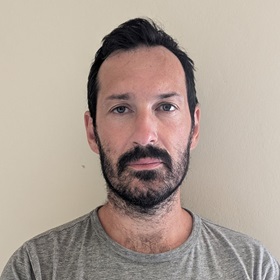Professor Luca Magnani
Group Leader: Breast Epigenetic Plasticity and Evolution

Biography
Luca Magnani's path in biotechnology began at the University of Bologna, where he completed his BSc and MSc in 2004. It was during an exchange visit to Purdue University that he discovered his interest in early embryogenesis. This curiosity guided him into the subtle complexities of chromatin and epigenetics, a field that would come to define his career.
Luca's work on chromatin remodelling ATPases took him to Michigan State University, where he continued his research on mouse embryogenesis. The questions he explored were fundamental, but the implications were vast, touching on how cells diversify their transcriptional programmes through non-genetic changes.
In 2009, Luca made a significant shift in his research focus. He began to investigate how cancer cells leverage the same processes that drive development to evolve drug resistance. Working with Professor Mathieu Lupien at Dartmouth College and the University of Toronto, he unearthed new insights into epigenetic reprogramming during tumour evolution.
In 2013, Luca's next step took him to Imperial College London, where, supported by a fellowship, he launched his independent lab. His work continued to revolve around the mysteries of oestrogen receptor breast cancer, bridging laboratory research with real-world clinical applications. His journey led him to the position of Chair in Cancer Adaptation and Evolution in 2020. Here, Magnani furthered his research into the biology of dormancy in oestrogen receptor breast cancer, moving ever closer to understanding how to eradicate them before resistance can evolve.
In September 2023, Luca joined the ICR as a professor, leading the Breast Cancer Epigenetics and Evolution Group. His group's goals reflect his ongoing commitment to innovation and patient care: to identify critical vulnerabilities in dormant cancer cells and to develop strategies that might lower the incidence of breast cancer.